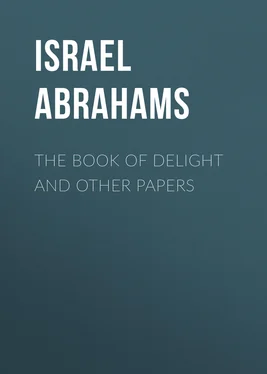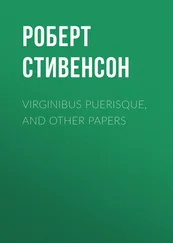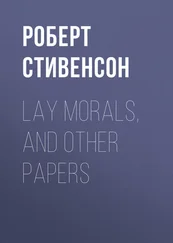Israel Abrahams - The Book of Delight and Other Papers
Здесь есть возможность читать онлайн «Israel Abrahams - The Book of Delight and Other Papers» — ознакомительный отрывок электронной книги совершенно бесплатно, а после прочтения отрывка купить полную версию. В некоторых случаях можно слушать аудио, скачать через торрент в формате fb2 и присутствует краткое содержание. Жанр: foreign_poetry, Поэзия, foreign_antique, foreign_prose, на английском языке. Описание произведения, (предисловие) а так же отзывы посетителей доступны на портале библиотеки ЛибКат.
- Название:The Book of Delight and Other Papers
- Автор:
- Жанр:
- Год:неизвестен
- ISBN:нет данных
- Рейтинг книги:5 / 5. Голосов: 1
-
Избранное:Добавить в избранное
- Отзывы:
-
Ваша оценка:
- 100
- 1
- 2
- 3
- 4
- 5
The Book of Delight and Other Papers: краткое содержание, описание и аннотация
Предлагаем к чтению аннотацию, описание, краткое содержание или предисловие (зависит от того, что написал сам автор книги «The Book of Delight and Other Papers»). Если вы не нашли необходимую информацию о книге — напишите в комментариях, мы постараемся отыскать её.
The Book of Delight and Other Papers — читать онлайн ознакомительный отрывок
Ниже представлен текст книги, разбитый по страницам. Система сохранения места последней прочитанной страницы, позволяет с удобством читать онлайн бесплатно книгу «The Book of Delight and Other Papers», без необходимости каждый раз заново искать на чём Вы остановились. Поставьте закладку, и сможете в любой момент перейти на страницу, на которой закончили чтение.
Интервал:
Закладка:
In the morning, the girl asked her father to give the officer the food she would prepare. She gave him thirty eggs, a dish full of milk, and a whole loaf. "Tell me," said she, "how many days old the month is; is the moon new, and the sun at its zenith?" Her father ate two eggs, a little of the loaf, and sipped some of the milk, and gave the rest to the officer. "Tell thy daughter," he said, "the sun is not full, neither is the moon, for the month is two days old." "Ah," laughed the peasant, as he told his daughter the answers of the officer, "ah, my girl, I told you he was a fool, for we are now in the middle of the month." "Did you eat anything of what I gave you?" asked the girl of her father. And he told her of the two eggs, the morsel of bread, and the sip of milk that he had taken. "Now I know," said the girl, "of a surety that the man is very wise." And the officer, too, felt that she was wise, and so he told her the king's dream. She went back with him to the king, for she told the officer that she could interpret the vision, but would do so only to the king in person, not through a deputy. "Search thy harem," said the girl, "and thou wilt find among thy women a man disguised in female garb." He searched, and found that her words were true. The man was slain, and the women, too, and the peasant's daughter became the king's sole queen, for he never took another wife besides her.
THE NIGHT'S REST
Thus Joseph and the giant Enan journey on, and they stay overnight in a village inn. Then commences a series of semi-medical wrangles, which fill up a large portion of the book. Joseph demands food and wine, and Enan gives him a little of the former and none of the latter. "Be still," says Enan, "too much food is injurious to a traveller weary from the way. But you cannot be so very hungry, or you would fall to on the dry bread. But wine with its exciting qualities is bad for one heated by a long day's ride." Even their asses are starved, and Joseph remarks sarcastically, "Tomorrow it will be, indeed, a case of carry-thou-me-or-I-thee, for our asses will not be able to bear us." They sleep on the ground, without couch or cover. At dawn Enan rouses him, and when he sees that his ass is still alive, he exclaims, "Man and beast thou savest, O Lord!" The ass, by the way, is a lineal descendant of Balaam's animal.
They proceed, and the asses nod and bow as though they knew how to pray. Enan weeps as they near a town. "Here," says he, "my dear friend died, a man of wisdom and judgment. I will tell thee a little of his cleverness."
THE DISHONEST SINGER AND THE WEDDING ROBES
A man once came to him crying in distress. His only daughter was betrothed to a youth, and the bridegroom and his father came to the bride's house on the eve of the wedding, to view her ornaments and beautiful clothes. When the bride's parents rose next day, everything had vanished, jewels and trousseau together. They were in despair, for they had lavished all their possessions on their daughter. My friend [continued Enan] went back with the man to examine the scene of the robbery. The walls of the house were too high to scale. He found but one place where entry was possible, a crevice in a wall in which an orange tree grew, and its edge was covered with thorns and prickles. Next door lived a musician, Paltiel ben Agan [or Adan] by name, and my late friend, the judge, interviewed him, and made him strip. His body was covered with cuts and scratches; his guilt was discovered, and the dowry returned to the last shoe-latchet. "My son," said he, "beware of singers, for they are mostly thieves; trust no word of theirs, for they are liars; they dally with women, and long after other people's money. They fancy they are clever, but they know not their left hand from their right; they raise their hands all day and call, but know not to whom. A singer stands at his post, raised above all other men, and he thinks he is as lofty as his place. He constantly emits sounds, which mount to his brain, and dry it up; hence he is so witless."
Then Enan tells Joseph another story of his friend the judge's sagacity:
THE NOBLEMAN AND THE NECKLACE
A man lived in Cordova, Jacob by name, the broker; he was a man of tried honesty. Once a jewelled necklet was entrusted to him for sale by the judge, the owner demanding five hundred pieces of gold as its price. Jacob had the chain in his hand when he met a nobleman, one of the king's intimate friends. The nobleman offered four hundred pieces for the necklet, which Jacob refused. "Come with me to my house, and I will consider the price," said the would-be purchaser. The Jew accompanied him home, and the nobleman went within. Jacob waited outside the gate till the evening, but no one came out. He passed a sleepless night with his wife and children, and next morning returned to the nobleman. "Buy the necklace," said he, "or return it." The nobleman denied all knowledge of the jewels, so Jacob went to the judge. He sent for the nobles, to address them as was his wont, and as soon as they had arrived, he said to the thief's servant, "Take your master's shoe and go to his wife. Show the shoe and say, Your lord bids me ask you for the necklace he bought yesterday, as he wishes to exhibit its beauty to his friends." The wife gave the servant the ornament, the theft was made manifest, and it was restored to its rightful owner.
And Enan goes on:
A merchant of measureless wealth had an only son, who, when he grew up, said, "Father, send me on a voyage, that I may trade and see foreign lands, and talk with men of wisdom, to learn from their words." The father purchased a ship, and sent him on a voyage, with much wealth and many friends. The father was left at home with his slave, in whom he put his trust, and who filled his son's place in position and affection. Suddenly a pain seized him in the heart, and he died without directing how his property was to be divided. The slave took possession of everything; no one in the town knew whether he was the man's slave or his son. Ten years passed, and the real son returned, with his ship laden with wealth. As they approached the harbor, the ship was wrecked. They had cast everything overboard, in a vain effort to save it; finally, the crew and the passengers were all thrown into the sea. The son reached the shore destitute, and returned to his father's house; but the slave drove him away, denying his identity. They went before the judge. "Find the loathly merchant's grave," he said to the slave, "and bring me the dead man's bones. I shall burn them for his neglect to leave a will, thus rousing strife as to his property." The slave started to obey, but the son stayed him. "Keep all," said he, "but disturb not my father's bones." "Thou art the son," said the judge; "take this other as thy lifelong slave."
Joseph and Enan pass to the city of Tobiah. At the gate they are accosted by an old and venerable man, to whom they explain that they have been on the way for seven days. He invites them to his home, treats them hospitably, and after supper tells them sweet and pleasant tales, "among his words an incident wonderful to the highest degree." This wonderful story is none other than a distorted version of the Book of Tobit. I have translated this in full, and in rhymed prose, as a specimen of the original.
THE STORY OF TOBIT
Here, in the days of the saints of old, in the concourse of elders of age untold, there lived a man upright and true, in all his doings good fortune he knew. Rich was he and great, his eyes looked ever straight: Tobiah, the son of Ahiah, a man of Dan, helped the poor, to each gave of his store; whene'er one friendless died, the shroud he supplied, bore the corpse to the grave, nor thought his money to save. The men of the place, a sin-ruled race, slandering, cried, "O King, these Jewish knaves open our graves! Our bones they burn, into charms to turn, health to earn." The king angrily spoke: "I will weighten their yoke, and their villainy repay; all the Jews who, from to-day, die in this town, to the pit take down, to the pit hurry all, without burial. Who buries a Jew, the hour shall rue; bitter his pang, on the gallows shall he hang." Soon a sojourner did die, and no friends were by; but good Tobiah the corpse did lave, and dress it for the grave. Some sinners saw the deed, to the judge the word they gave, who Tobiah's death decreed. Forth the saint they draw, to hang him as by law. But now they near the tree, lo! no man can see, a blindness falls on all, and Tobiah flies their thrall. Many friends his loss do weep, but homewards he doth creep, God's mercies to narrate, and his own surprising fate, "Praise ye the Lord, dear friends, for His mercy never ends, and to His servants good intends." Fear the king distressed, his heart beat at his breast, new decrees his fear expressed. "Whoe'er a Jew shall harm," the king cried in alarm, "touching his person or personalty, touches the apple of my eye; let no man do this wrong, or I'll hang him 'mid the throng, high though his rank, and his lineage long." And well he kept his word, he punished those who erred; but on the Jews his mercies shone, the while he rilled the throne.
Читать дальшеИнтервал:
Закладка:
Похожие книги на «The Book of Delight and Other Papers»
Представляем Вашему вниманию похожие книги на «The Book of Delight and Other Papers» списком для выбора. Мы отобрали схожую по названию и смыслу литературу в надежде предоставить читателям больше вариантов отыскать новые, интересные, ещё непрочитанные произведения.
Обсуждение, отзывы о книге «The Book of Delight and Other Papers» и просто собственные мнения читателей. Оставьте ваши комментарии, напишите, что Вы думаете о произведении, его смысле или главных героях. Укажите что конкретно понравилось, а что нет, и почему Вы так считаете.











